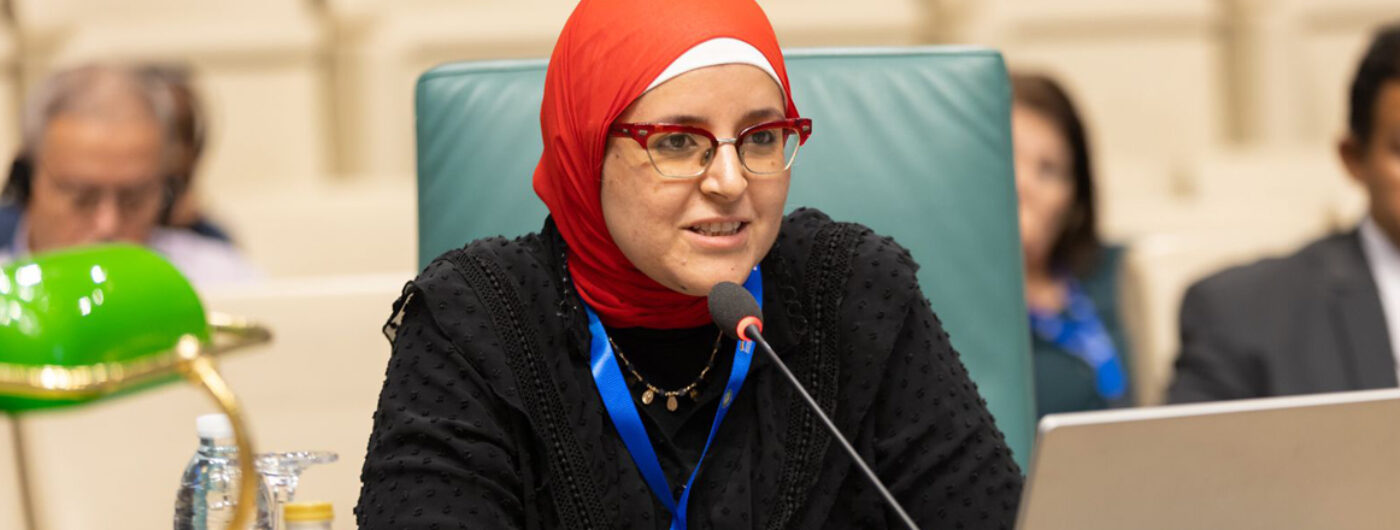
Ayah Elarief, spearheading education and female entrepreneurship efforts in the MENA region
In a region where educational systems still have some room for improvement and where absenteeism is at times higher than desirable, Ayah Elarief has an answer: Warrd. The EdTech startup, founded by the Egyptian entrepreneur at the height of Covid when she was heavily pregnant, creates digital games that enhance children’s learning experiences in the classroom. The company’s premise is a simple one: the more excited and engaged students are, the more likely they are to learn.
“When I was on a trip to Upper Egypt, I saw many girls who were playing in the street and I wondered why they didn’t want to go to school,” Elarief recounted in a recent interview with the Union for the Mediterranean. A businesswoman with a background in animation and graphics, she came up with the idea of using gamification as a means of encouraging children to go to school and therefore improving educational outcomes, thus leading to the birth of Warrd.
“We make content that makes educational curriculums easier and more interactive for kids. Instead of being bored, they want to answer questions because they are eager to play the games. Teachers used to call us and tell us they were very happy that kids started to go back to school because they wanted to try the games.”
With games based on national curriculums, Warrd has helped modernise teaching methods and improve digital skills for some 30,000 students in more than 150 schools across Egypt, as well as in France, England, Nigeria, and Côte d’Ivoire. This also includes disadvantaged schools as Warrd periodically searches for funding opportunities to provide them with devices and to train teachers in how to use them. The company has developed elementary-level lessons in Arabic, English, French, science, mathematics and social studies for now, but Elarief hopes to expand to higher grades – and more countries – soon too.
As an entrepreneur, Elarief is perhaps the perfect embodiment of a can-do attitude, spurred by a constant desire to overcome obstacles. This mindset has served her well not only as the CEO of her own company, but also as the managing director of the MENA Women Business Club, the now-autonomous initiative that was first launched by the UfM and the United Nations Industrial Development Organisation (UNIDO) in 2021 and which was recently commended for its best practices by the EU-funded CREACT4MED Project.
But how did she get there? Elarief is quick to admit she was not always the positive go-getter she is today. In her telling, this can be attributed, at least in part, to a negative work experience early in her career that proved to be more transformative than she could have ever imagined at the time.
“I worked at a very famous animation studio in Cairo in my early twenties. They didn’t like to hire women, but I got the job because I was talented and the director knew me,” Elarief explained. One day, when the CEO came to visit from abroad, she was forced to hide from his sight. “I was on the balcony, in the sun, for an hour!” she exclaimed indignantly. But there was still some good that came of it: “That day I thought to myself, ‘I don’t need to do this, I don’t need to be in this situation anymore’.”
This is but one of the many instances of gender-based discrimination she has since faced professionally, but it served as a turning point in her career, propelling her to launch her first startup – and then a second and a third after the previous two failed. It also inspired her to band together with other MENA women, working tirelessly to break down barriers in the predominantly male world of business.
“When someone tells me I can’t do something, I do it. Women are eager to work and are eager to succeed. When you make women feel like they are powerful and can do a lot of things, they actually can.”
Ayah Elarief took part in the MENA Women Business Club initiative and is currently its managing director. The MENA WBC is jointly promoted by the Union for the Mediterranean (UfM) and the United Nations Industrial Development Organisation (UNIDO). As a regional chapter of Business Club Africa, members have access to an extensive ecosystem of entrepreneurs, lawyers, consultants, executives, and investors in sectors as varied as energy, agriculture, mining, tech, construction, finance, retail & distribution that enable the club members to network and grow their business.
More on the UfM and the fight for women’s participation in economic and public life:
- Discover the work carried out by the Social & Civil Affairs division
- Learn more about data on this topic thanks to the first-ever Intergovernmental Monitoring Mechanism on Gender Equality in the Euro-Mediterranean Region
